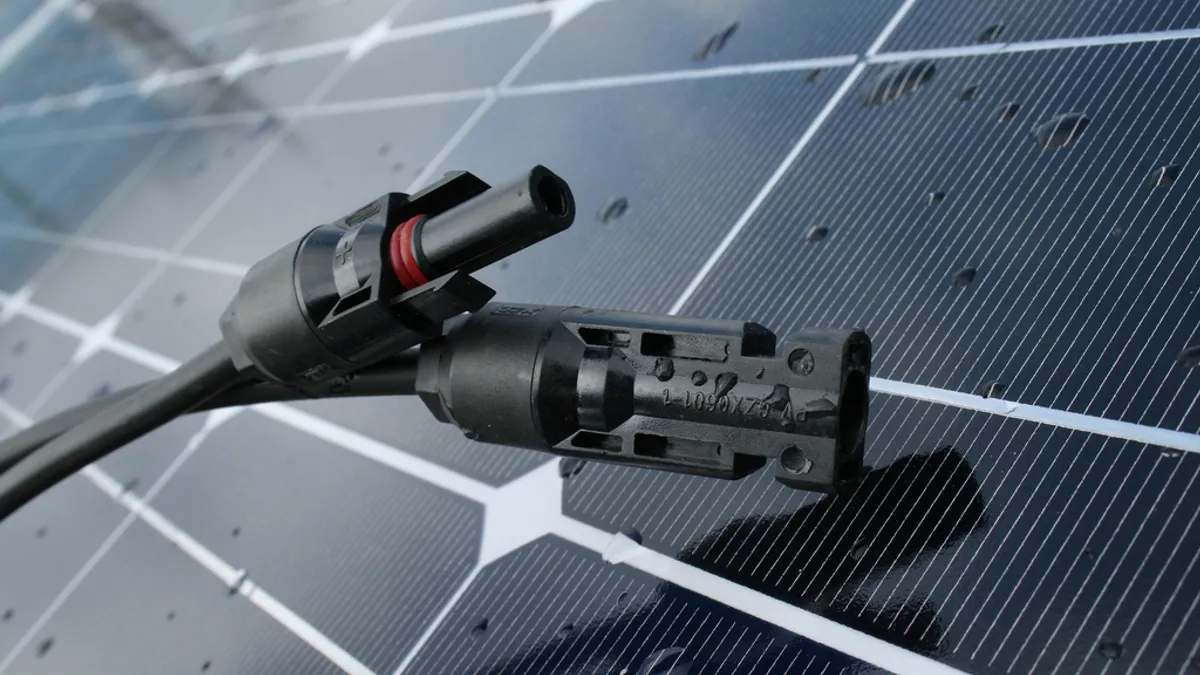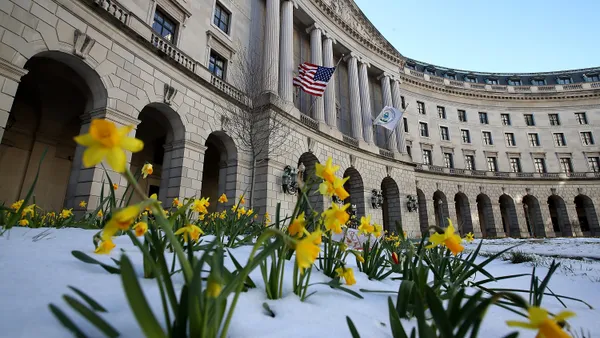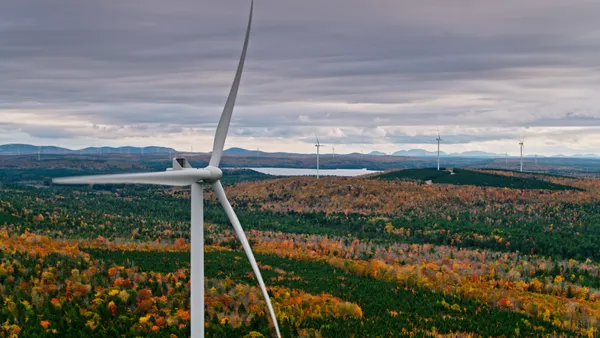Dive Brief:
- Duke Energy said it will connect a church's rooftop solar system to the utility grid, but warned that any power sales direct by energy advocacy group NC WARN – which built and owns the system – will run afoul of the state law.
- The group constructed the 5.2 kW solar project on the roof of Faith Community Church in Greensboro, at least in part to set up a challenge to rules restricting the sale of electricity third party energy suppliers in North Carolina. Rules currently require any generation asset to sell energy to the regualted utility, which may then pass it to customers, but NC WARN officials say the rules should be interpreted to allow sale of electricity in the public service, such as from their solar array.
- In a letter to NC WARN, Duke officials told the activists that they would interconnect the solar array "in order to not inconvenience" the church, but said that the interconnection was a separate issue from the activist group engaging in "unlawful provision of unregulated public utility service.”
Dive Insight:
NC WARN is pushing to either change or clarify — depending on which side you take — rules in North Carolina that limit power sales by anyone but the regulated utility. While the group is also backing a piece of legislation that would allow third party ownership and direct energy sales, it says that existing rules already allow it to sell electricity as a public service to an instution like a church. The solar third party ownership bill, HB 245, has been stuck in committee in the North Carolina House since March.
The rooftop system constructed for Faith Community will likely force the issue, either putting it before regulators or the court system.
Charlotte Business Journal reports on the lawyerly exchange between Duke and NC WARN, with both sides pushing for clarity.
Duke attorney Bo Somers sent the group a letter warning that “any sale of electricity by NC WARN to Faith Community Church, or any third party, is expressly prohibited by ... North Carolina General Statutes and applicable court and commission precedent.” But the utility also agreed to connect the system to its grid, to allow excess power to be sold back, so as not to inconvenience the church.
CBN spoke with NC WARN Executive Director Jim Warren, who said his group disagrees with the utility's legal analysis. “We know it could take a while to get this resolved,” Warren told the news outlet. “It could be done by regulator, or the courts or maybe the legislature will finally resolve it.”
NC WARN intends to donate the solar system back to the church should its arrangement be deemed illegal.
Activists say that Duke should not fear allowing third parties to sell enegy directly to consumers, and point out that its unregulated renewables developer uses TPO agreements in other states to sell power from its generation assets. Duke officials say they prefer to take on the TPO issue as a part of a comprehensive reform deal with clean energy activists and solar developers, like they did in South Carolina last year.















